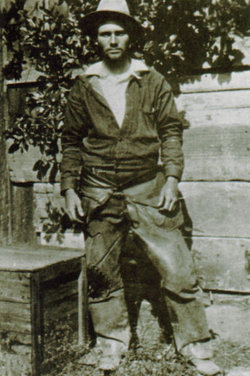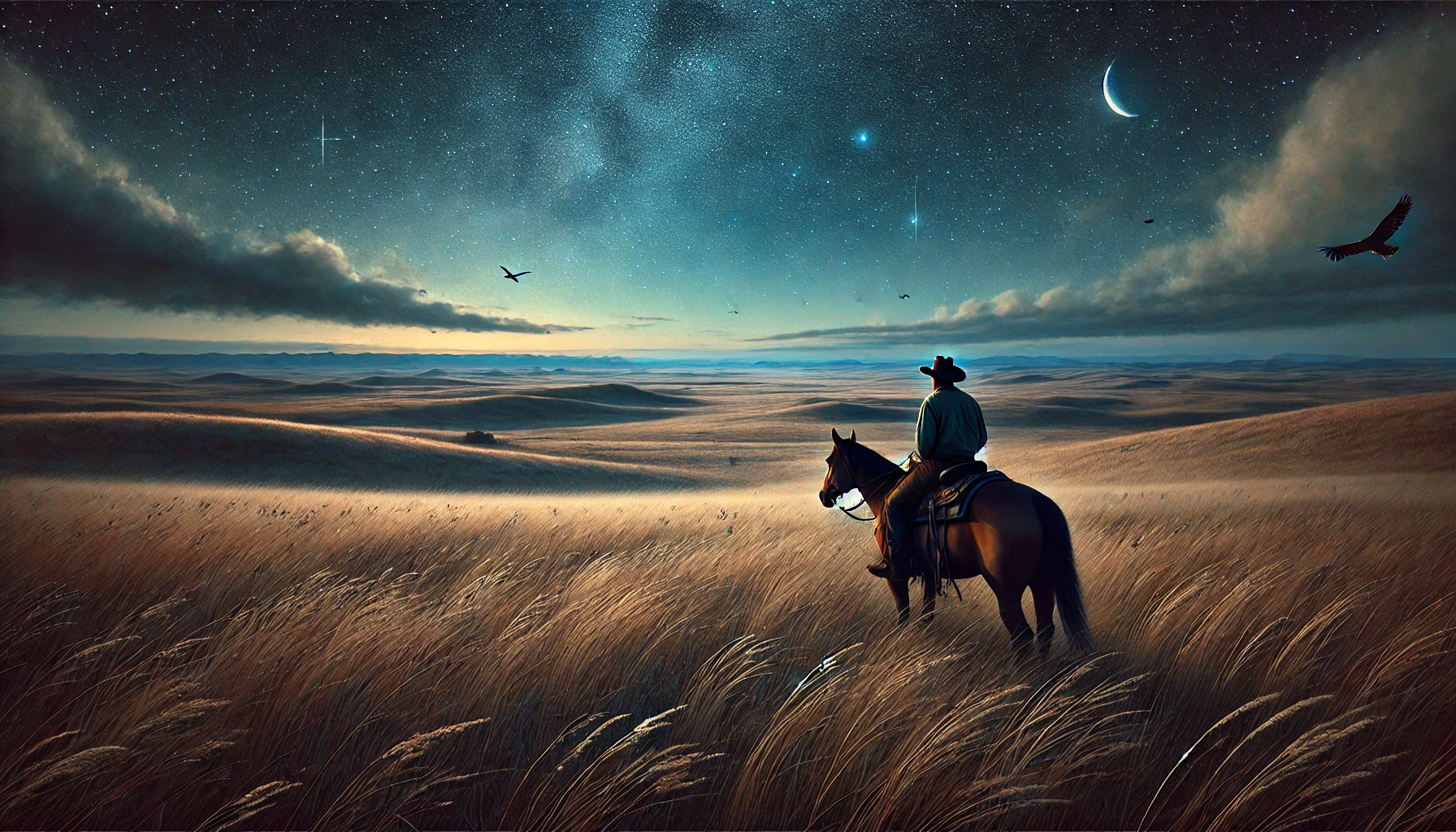“The Men Who Don’t Fit In” by Robert Service
There’s a race of men that don’t fit in,
A race that can’t stay still;
So they break the hearts of kith and kin,
And they roam the world at will.
They range the field and they rove the flood,
And they climb the mountain’s crest;
Theirs is the curse of the gypsy blood,
And they don’t know how to rest.
If they just went straight they might go far;
They are strong and brave and true;
But they’re always tired of the things that are,
And they want the strange and new.
They say: “Could I find my proper groove,
What a deep mark I would make!”
So they chop and change, and each fresh move
Is only a fresh mistake.
And each forgets, as he strips and runs
With a brilliant, fitful pace,
It’s the steady, quiet, plodding ones
Who win in the lifelong race.
And each forgets that his youth has fled,
Forgets that his prime is past,
Till he stands one day, with a hope that’s dead,
In the glare of the truth at last.
He has failed, he has failed; he has missed his chance;
He has just done things by half.
Life’s been a jolly good joke on him,
And now is the time to laugh.
Ha, ha! He is one of the Legion Lost;
He was never meant to win;
He’s a rolling stone, and it’s bred in the bone;
He’s a man who won’t fit in.
About “The Men Who Don’t Fit In” by Robert Service
Summary, Analysis, and the Restless Spirit That Connects Him to Arizona Writers
Robert W. Service (1874–1958), often called “the Bard of the Yukon,” is remembered for his rollicking ballads, frontier storytelling, and vivid portrayals of wanderers, gamblers, and outcasts. Born in England and raised in Scotland, Service immigrated to Canada, where he worked as a banker and traveled extensively. He gained international fame for his poems about life during the Klondike Gold Rush, especially “The Shooting of Dan McGrew” and “The Cremation of Sam McGee.” Yet it is “The Men Who Don’t Fit In”—first published in his 1907 collection Songs of a Sourdough—that continues to resonate across generations, especially with readers who feel like outsiders to conventional life.
Like Arizona’s Edward Abbey, Service gave voice to the renegade, the dissenter, and the free-spirited wanderer. Both authors shared a deep suspicion of conformity and a romantic vision of those who follow their own rugged path—even when it leads to isolation.
📚 Poem Summary
“The Men Who Don’t Fit In” captures the restless soul who resists society’s expectations, choosing a life of wandering over stability. Service introduces us to “a race of men that don’t fit in,” individuals who, despite their strength and character, are driven by an unshakable urge to seek out the unfamiliar.
These men “roam the world at will,” climbing mountains and crossing oceans, always chasing a vague notion of fulfillment or purpose. Though they have potential—”strong and brave and true”—they are perpetually dissatisfied, believing they’re just one move away from finally finding their “proper groove.” Unfortunately, that next move often proves to be “only a fresh mistake.”
Over time, these men grow older, their youthful hopes slipping away until they’re left confronting the reality of unfulfilled potential. In the end, Service offers a bittersweet laugh and the acknowledgment that these men were “never meant to win”—not by the standards of a world that rewards steadiness, routine, and predictability.
🔍 Analysis: The Mythos of the Restless Outsider
At its core, “The Men Who Don’t Fit In” is a poetic portrait of the romantic wanderer—a figure equally celebrated and mourned. These men, often misunderstood by society, represent a type of individualism that refuses to be tamed. They have “the curse of the gypsy blood,” a metaphor for innate restlessness, an inherited trait that makes them incapable of settling down.
Service doesn’t condemn these men, but neither does he glorify them blindly. His tone is reflective, almost elegiac. The poem is a meditation on both the beauty and the cost of nonconformity. While society may view these individuals as failures—those who “just done things by half”—Service frames their choices as inevitable, even noble in their refusal to compromise.
This poem resonates especially deeply in the American West, where frontier mythology and the lone cowboy figure dominate cultural narratives. Arizona, in particular, has long attracted these “men who don’t fit in”—from miners and ranchers to artists, survivalists, and poets like Edward Abbey, who fiercely critiqued mainstream culture and government control, choosing instead a solitary existence in the redrock wilderness of southern Utah and Arizona.
🏜️ Robert Service and the Arizona Spirit
Although Robert Service never settled in Arizona, his work parallels many of the region’s most iconic literary voices. Like Abbey, Service writes about independence, isolation, and living deliberately on the margins. Both men saw poetry as a tool for giving voice to the misfits and rebels—the kind of people who ride alone into the desert, unbothered by convention or comfort.
In Abbey’s Desert Solitaire and The Monkey Wrench Gang, we meet similarly untamable characters who live outside the law and resist societal expectations. These are spiritual cousins to Service’s “Legion Lost.” They may never win medals or corporate promotions, but they live authentically—and that, for poets like Service and Abbey, might be the real definition of success.
✍️ Final Thoughts
“The Men Who Don’t Fit In” remains one of Robert Service’s most enduring poems not just because of its lyrical cadence, but because it speaks to something universal: the longing to be free, to wander, to reject the pressure to fit in. It’s a rallying cry for anyone who has ever felt out of place in the world—and a gentle reminder that, while this path is not easy, it is often true.





